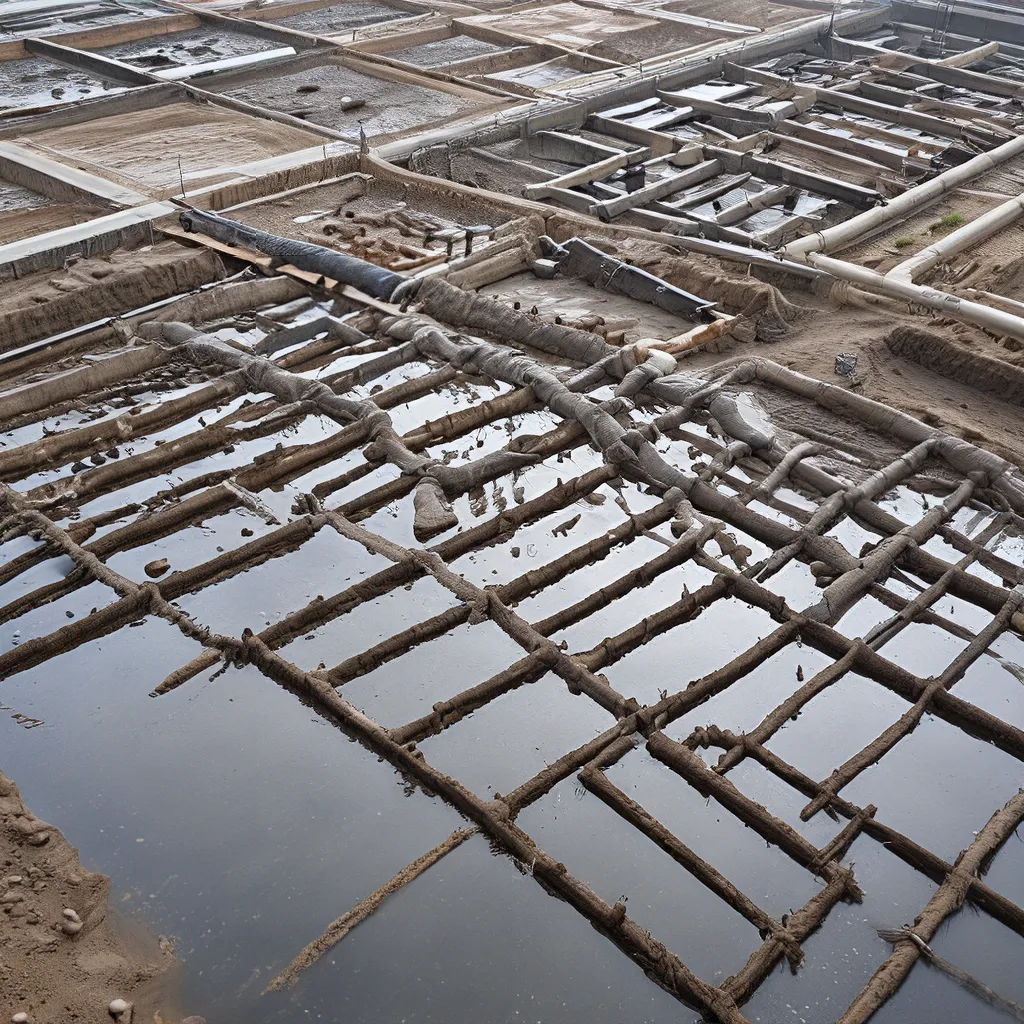
As an avid supporter of sustainable solutions, I’ve always been fascinated by the incredible potential of biotechnology to transform the way we approach wastewater management. In a world where clean water is a precious commodity, the advancements happening in this field are truly remarkable, and I’m excited to share my insights with you.
Unlocking the Power of Enzyme Technology
One of the most exciting developments in wastewater treatment has been the rise of enzyme technology. These natural, biodegradable catalysts have the ability to break down complex organic compounds, making them a game-changer in the industry. Imagine if we could harness the power of enzymes to efficiently and sustainably treat our wastewater, all while reducing the need for harsh chemicals. Well, that future is within our grasp, and it’s thanks to the innovative work being done by leaders in the field of biotechnology.
Take, for instance, the work of the Novozymes team. This Danish biotechnology company has been at the forefront of enzyme production, developing cutting-edge solutions that are revolutionizing the way we approach wastewater treatment. Through their tireless research and development efforts, they’ve unlocked the potential of enzymes to tackle even the most stubborn pollutants, paving the way for a more sustainable and environmentally friendly approach to wastewater management.
But it’s not just Novozymes leading the charge. Across the globe, bioinnovation is taking center stage, as researchers and scientists collaborate to push the boundaries of what’s possible. From exploring new enzyme combinations to experimenting with novel microbial processes, the possibilities are endless, and the potential impact is truly staggering.
Harnessing Microbial Power
Another exciting area of advancement in wastewater treatment is the utilization of microbial processes. These tiny, yet incredibly powerful, organisms hold the key to unlocking even more sustainable solutions. By leveraging the natural abilities of microbes to break down and metabolize various pollutants, we can create closed-loop systems that minimize waste and maximize resource recovery.
Imagine a future where wastewater treatment plants are not just places where we clean up our mess, but where we actively contribute to the circular economy. Through the strategic application of microbial technologies, we can transform wastewater into valuable resources, like biofuels, fertilizers, or even raw materials for other industrial processes. It’s a future that’s not as far-fetched as it might seem, and it’s all thanks to the incredible advancements happening in the world of biotechnology.
Embracing Bioinnovation: The Path Forward
As I delve deeper into this topic, I’m struck by the sheer breadth and depth of the innovations happening in the realm of wastewater treatment. Bioinnovation is no longer just a buzzword; it’s a driving force behind the solutions that will shape the future of our water management systems.
Take, for example, the work being done by the Biotechnology Innovation Organization (BIO). This powerful advocacy group is at the forefront of championing for policies that promote innovation and improve patient access to cutting-edge treatments. But their influence extends far beyond the medical field, as they’re also working tirelessly to support the advancement of sustainable solutions, including those in the wastewater treatment industry.
Through their strategic advocacy and unwavering leadership, BIO is helping to drive the conversation around renewable fuels and industrial products, shaping the future of the bioeconomy and paving the way for a more sustainable future. And it’s not just BIO; across the globe, research institutions, startups, and industry leaders are collaborating to push the boundaries of what’s possible, all in the pursuit of creating a cleaner, more efficient, and more resilient wastewater management system.
A Future of Endless Possibilities
As I reflect on the incredible advancements happening in the world of wastewater treatment, I can’t help but feel a sense of excitement and wonder. The potential of biotechnology and bioinnovation to transform this industry is truly staggering, and the possibilities are endless.
Imagine a world where wastewater treatment plants are not just centers of pollution control, but hubs of resource recovery and sustainability. Where the very same water we’ve used and discarded can be transformed into valuable commodities, contributing to a more circular and eco-friendly economy. It’s a future that’s well within our grasp, and it’s all thanks to the tireless efforts of innovators, researchers, and passionate advocates who are dedicated to creating a better, cleaner world.
And as I look to the future, I can’t help but feel a sense of optimism. With organizations like Alpha Wastewater leading the charge in the realm of wastewater treatment services, I know that the path forward is bright. By embracing the power of biotechnology and bioinnovation, we can create a future where clean water is not just a luxury, but a fundamental human right, accessible to all.
So, let’s continue to push the boundaries, to explore new frontiers, and to unlock the endless possibilities that lie before us. Because when it comes to the future of wastewater treatment, the only limit is our own imagination.